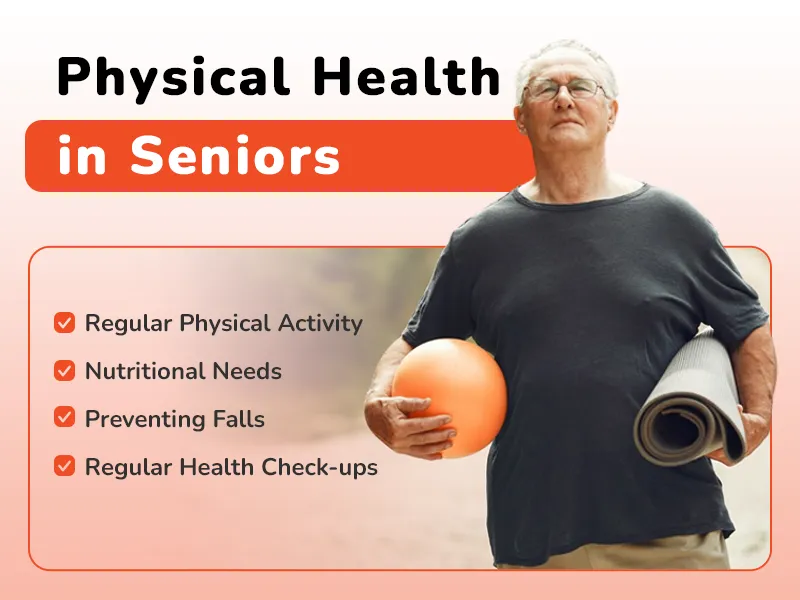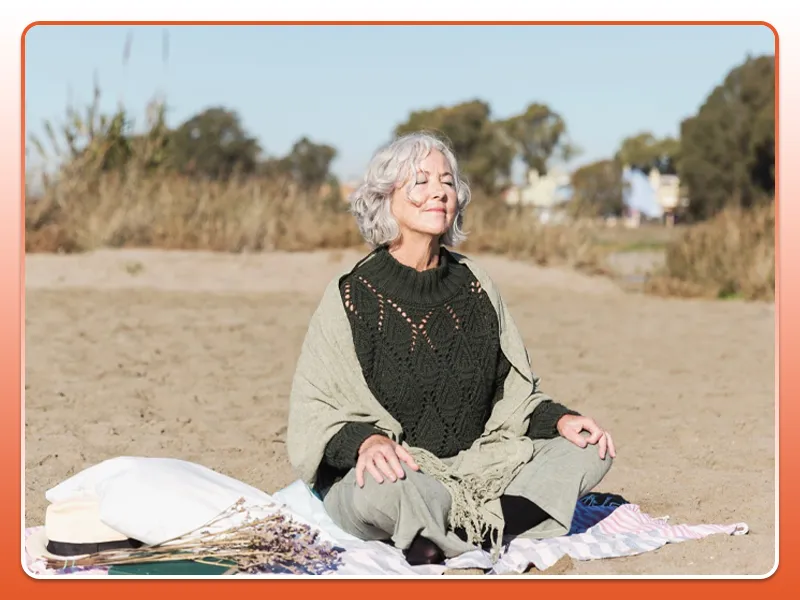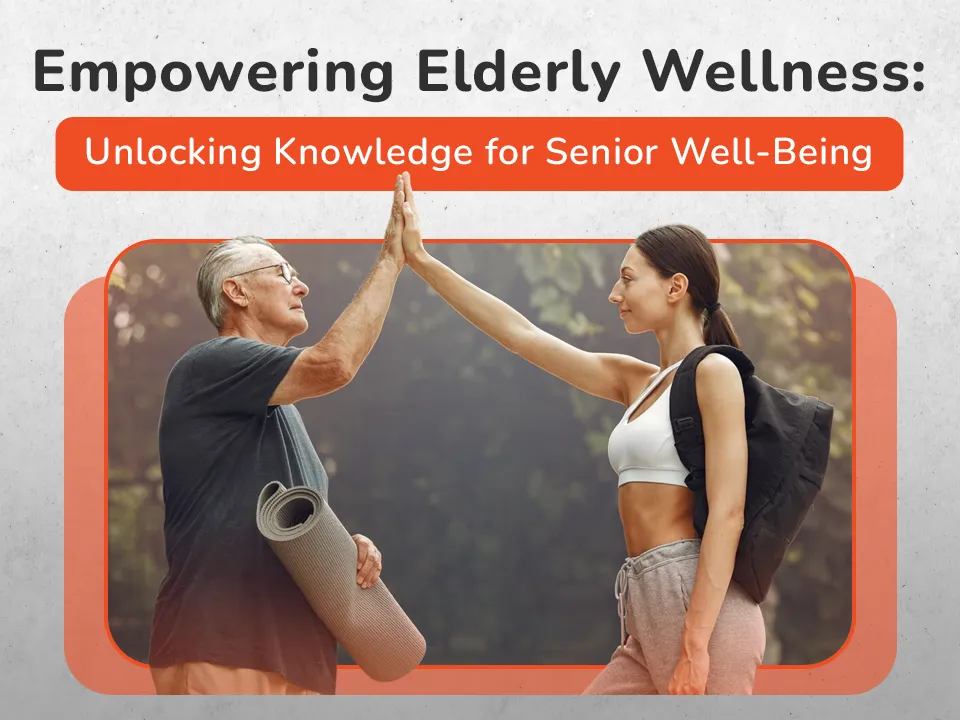The golden years bring a tapestry of experiences, wisdom, and, inevitably, changes. Our bodies and minds embark on unique transformation journeys as we navigate these later chapters. These transformations, while natural, introduce a series of new challenges that test our resilience and adaptability. However, within these challenges lie opportunities to redefine our understanding of health, embrace wellness in its fullest expression, and discover new dimensions of happiness and fulfillment. Empowering elderly wellness is a comprehensive endeavor that seeks to harness these opportunities, guiding seniors toward practices and lifestyle adjustments that bolster their health and enrich their lives. This article aims to illuminate the path to achieving a vibrant, well-rounded state of being in our later years, delving into the nuances of senior well-being with practical insights and actionable tips. By embracing the strategies outlined, seniors can look forward to enjoying their later years with grace, vitality, and joy.
Understanding the Aging Process
Aging is an intricate and inevitable phenomenon, a testament to the life we’ve lived and the experiences we’ve gathered. It’s a process marked by gradual, visible, and invisible changes in our physical and cognitive functions. While universally shared, these changes manifest uniquely in each individual, painting a diverse picture of aging. Recognizing and accepting these changes is the bedrock of elder wellness, allowing us to approach aging not as a decline but as a new stage of growth and adaptation.
The aging journey necessitates a shift in perspective, urging us to redefine our approach to health and well-being. It calls for a proactive stance informed by knowledge and understanding our evolving needs. By comprehending the biological, psychological, and social dimensions of aging, seniors and their caregivers are better equipped to make informed decisions that enhance quality of life. This includes navigating healthcare choices, adapting physical activities to match changing abilities, and tailoring daily routines to support body and mind.
Understanding the aging process also demystifies the experiences of growing older, fostering a culture of openness and preparedness. It encourages dialogue between seniors, their families, and healthcare providers, ensuring that the journey through the later years is not one navigated in isolation but with support and compassion. Through this collective approach, the aging process becomes an integrated aspect of life’s continuum, respected for its challenges and celebrated for its opportunities for continued growth, learning, and happiness.
Physical Health in Elderly Wellness
The adage that “motion is lotion” holds especially true as we advance into our senior years, underscoring the critical role of physical health in aging gracefully and vibrantly. Maintaining an active and healthy lifestyle is not merely about extending life expectancy but enriching the quality of everyday life.

- Regular Physical Activity: The benefits of regular, gentle exercise extend far beyond the physical. Walking, swimming, and tai chi do more than just improve mobility and balance; they serve as keystones in fostering social connections, enhancing mood, and promoting cognitive function. These forms of exercise are adaptable to individual abilities. They can be tailored to meet the unique needs of each senior, making physical activity a joy and a cornerstone of health maintenance.
- Nutritional Needs: As the body ages, its nutritional requirements evolve. A diet that emphasizes the intake of whole foods, rich in vitamins, minerals, and fiber, plays a pivotal role in supporting bodily functions, maintaining energy levels, and safeguarding against malnutrition—a common but often overlooked issue in the elderly. Attention to hydration, calcium for bone health, and foods that are easy to digest can make a significant difference in overall well-being.
- Preventing Falls: Falls are a leading cause of injury among seniors, yet many are preventable with proactive measures. Creating a safe living environment, free from trip hazards like loose rugs and clutter, combined with exercises to enhance balance and strength, such as yoga or strength training, can substantially mitigate fall risks. Personal alert systems, regular eyesight, and hearing checks contribute to a comprehensive fall prevention strategy.
- Regular Health Check-ups: An ounce of prevention is worth a pound of cure. Routine health screenings become increasingly important with age, enabling the early detection and management of conditions like diabetes, heart disease, and osteoporosis. These check-ups allow seniors to discuss concerns with their healthcare providers, ensuring their healthcare plan evolves alongside their needs.
Mental and Emotional Wellness for Elderly Wellness

The intersection of mental and emotional health with physical well-being is profound, particularly in our senior years. A holistic approach to wellness acknowledges the indelible link between the mind and body, advocating for care that nurtures both.
- Social Engagement: Loneliness and isolation can have detrimental effects on both mental and physical health. Maintaining social connections through family, friendships, or community involvement acts as a buffer against depression, enhances self-esteem, and contributes to a longer, happier life. Senior centers, clubs, and online communities offer valuable opportunities for engagement and companionship.
- Mental Stimulation: Keeping the mind active is as crucial as physical exercise. Engaging in intellectually stimulating activities, such as reading, puzzles, learning new skills, or indulging in creative pursuits like painting or music, can improve cognitive function, fostering a sense of achievement and personal growth.
- Stress Management: The golden years should be a time of tranquility, yet stress can arise from health concerns, financial worries, or losing loved ones. Mindfulness practices, meditation, and gentle breathing exercises are powerful tools in managing stress levels promoting a sense of calm and well-being that supports overall health.
Read More: Senior Health and Well-Being: Lifestyle Changes for a Vibrant Life
The journey through senior wellness is multi-faceted, weaving the physical, mental, and emotional strands into a tapestry of well-being. By adopting a proactive and comprehensive approach to health, seniors can not only navigate the challenges of aging but also uncover new joys and opportunities for growth, ensuring that each day is lived to its fullest potential.
The Importance of Social Connections for Elderly Wellness
The fabric of our lives is woven with the threads of relationships and interactions, a truth that gains even more significance as we age. Strong social ties have been scientifically linked to better health outcomes for seniors, underscoring the importance of nurturing these connections. Encouraging seniors to participate in community activities, engage with senior centers, or join online forums can significantly impact their social well-being. These platforms offer more than just a chance to socialize; they provide vital emotional support, opportunities for meaningful engagement, and a sense of belonging. Activities like group exercise classes, book clubs, or art workshops not only stimulate the mind but also foster a community spirit, helping seniors to combat loneliness and feel valued within a community. Facilitating these connections is essential in promoting a holistic approach to senior wellness, emphasizing that health is not solely physical but deeply intertwined with our social world.
Navigating Healthcare in Later Life
As we advance in age, the healthcare landscape can seem like a labyrinth fraught with complexities and critical decisions. Navigating this terrain requires not just caution but empowerment through knowledge. Understanding the intricacies of insurance options, the implications of various medications, and the importance of a personalized care plan is paramount. Seniors and their caregivers must advocate for their health, seeking clarity on treatment options and staying informed about the latest healthcare management. Establishing open lines of communication with healthcare providers, utilizing resources like patient navigators or geriatric care managers, and staying informed about preventive care measures can demystify the process and ensure that seniors receive the care they need and deserve. In this way, navigating healthcare in later life becomes less about confronting barriers and more about charting a course toward sustained well-being.
Lifelong Learning and Growth
Pursuing knowledge and personal growth does not retire with age; it becomes a pathway to rejuvenation and discovery. Lifelong learning is a beacon for seniors, illuminating opportunities to engage with the world in new and enriching ways. Whether it’s returning to formal education, exploring new hobbies, or indulging in the joy of travel, these activities stimulate the brain, foster a sense of accomplishment, and significantly enhance one’s quality of life. Learning a new language, picking up a musical instrument, or attending lectures and workshops keeps the mind agile and provides a sense of purpose and joy. This continuous quest for knowledge and personal growth underscores the limitless potential of the senior years, proving that age is but a number when it comes to expanding our horizons and embracing life’s endless possibilities.
Conclusion
Empowering elderly wellness transcends physical health, delving into mental well-being, social connectedness, and lifelong learning. It’s about equipping seniors with the knowledge and tools to navigate the inevitable aging changes, transforming challenges into growth, happiness, and fulfillment opportunities. Seniors can unlock a life of vibrancy and purpose by prioritizing holistic health, fostering strong social ties, navigating healthcare confidently, and embracing continuous learning. This comprehensive approach to wellness illuminates the path toward surviving and thriving in the later years, embodying a complete physical, mental, and social well-being. In embracing these strategies, seniors can look forward to a future filled with joy, discovery, and unparalleled well-being, proving that the best is yet to come.




